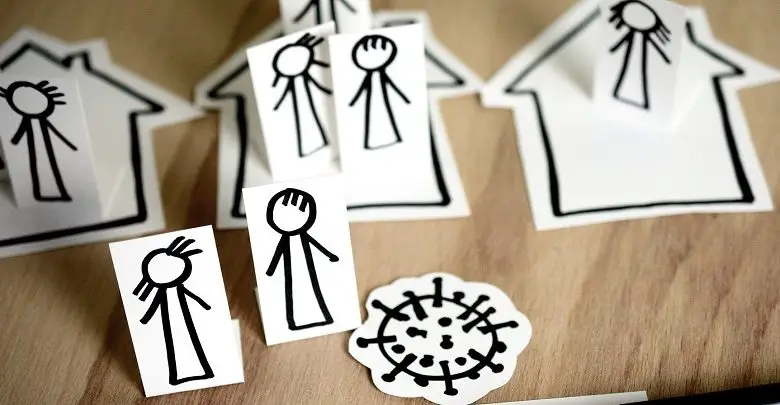
How to self-isolate or shield and get help: a practical guide if you’re disabled
As the UK lockdown rules have been relaxed, many disabled people are still shielding for 12 weeks or more. There has been a lot of confusion surrounding some lockdown measures – ‘shielding’ vs ‘self-isolation’ and what the difference between the ‘clinically vulnerable’ and ‘clinically extremely vulnerable’ groups is.
To help you clear up the confusion, we’ve created a detailed guide on shielding vs isolation, how to shield if you’re disabled, where you can find support if you need it and recent changes announced by the Government.
We’ve also shared some of your stories to highlight people’s differing experiences. Share yours by commenting at the bottom of this article, or joining the conversations in our DHorizons Tribe.
LAST UPDATE: 24th June 2020
Please note, the ‘high risk’ group has now been renamed to ‘clinically vulnerable’.
On 31st May, the Government announced that people who have been advised to shield can go outside for exercise.
On 22nd June 2020, the Government announced further relaxing of guidance for those shielding from the beginning of July, including meeting with up to six others outside your household, and pausing shielding from August.
Head down to our section on the changes to guidance for people advised to shield for more detail.
Click on the links to head down to the section you want:
- What is isolation?
- Isolation and shielding: what’s the difference?
- Shielding from others
- Changes to ‘shielding’ advice from July
- Coronavirus ‘clinically vulnerable’ groups
- Coronavirus ‘clinically extremely vulnerable’ groups
- Who should socially distance, isolate and shield?
- How to shield or self-isolate
- Where to get for help if you’re isolating
Coronavirus: what is isolation?
The UK lockdown rules – where people were staying at home and only going out for essentials, one form or exercise daily and to work if they couldn’t work from home – have been relaxed, while social distancing is still very much in place.
But millions of people with disabilities and pre-existing health conditions have been advised to go further than this, ‘shielding’ or self-isolating for 12 weeks.
If you have a disability or health condition, you may fall into one of two groups – ‘clinically vulnerable‘ or ‘clinically extremely vulnerable‘ – you can click on the links to go straight down to our sections on these groups.
Many of these people have been contacted by the NHS or their GP to advise them on what to do. But we’ve heard of instances where these letters weren’t always consistent or clear.
Some have been explicitly asked to isolate for 12 weeks, while others have been told to ‘shield’.
We also know of people who don’t technically fit into these categories but believe they would be more badly affected if they caught the virus – more on this below.
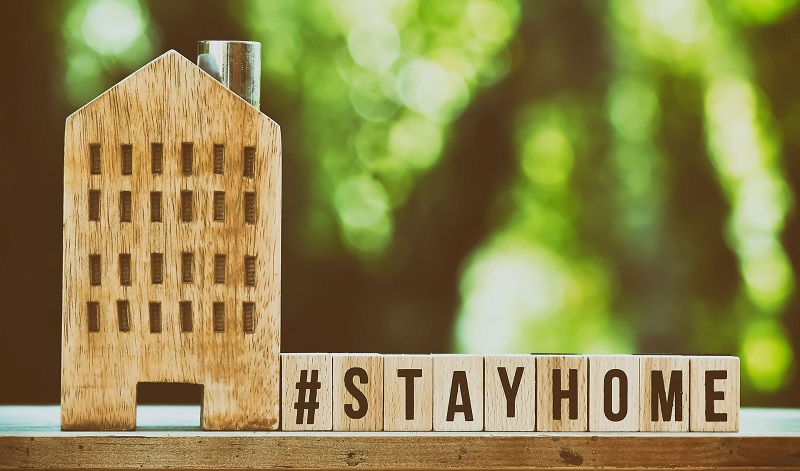
Isolation and shielding: what’s the difference?
‘Isolation’ or ‘self-isolation’ essentially means staying at home all the time and not going out for anything, including essentials. If you have been advised to do this by the NHS or your GP, it’s likely that this was for 12 weeks until the end of June.
‘Shielding’ is effectively the same thing – shielding yourself from getting the virus by staying at home and avoiding contact with the outside world.
However, on 31st May, the Government announced that people shielding can go outside, for example for exercise, but keeping this to a minimum and maintaining social distancing.
On the 22nd June, those shielding were told that they will be able to do even more from 6th July, and that in August, ‘shielding’ will be paused.
You can read more about these latest changes to the shielding rules below.
Shielding also means staying away from others in your home, although is now being relaxed in the new Government guidance as of 6th July.
Please also note that the term ‘self-isolation’ also applies to anyone displaying Covid-19 symptoms – a new continuous cough or high temperature. If someone does, they should self-isolate for 7 days, and other members of the household for 14 days, and shouldn’t leave the house at all. Find out more on this by visiting our full guide to Covid-19.
If you or someone is unwell and are concerned or can’t cope at home with their symptoms, go online to the NHS 111 service, or call 999 if it’s an emergency.
Shielding from others
If you have decided to shield from others in your household, the advice is to stay at least two metres away from them.
If that isn’t possible, you might want to stay in one room and only use common areas, such as the kitchen and bathroom, at separate times.
Use separate cutlery and towels (hand and bathing), and sleep in different rooms if you can. If you have more than one bathroom, use different ones.
Where you need to share an area, get them to clean surfaces they have touched after each use, such as handles on kitchen cupboards, work surfaces, taps and toilet flushes. Keep your house well ventilated too.
They should practise social distancing measures when out and at home. That includes avoiding non-essential contact, staying 2 metres away from others outside and practising good hygiene.
If you have PAs or carers to help with day-to-day tasks, visit our main guide for tips on staying safe when using PAs/carers.
If you are protecting a child who fits into one of the two groups below or who you feel is more ‘at risk’ if they caught the virus, visit the Great Ormond Street website for specific advice on protecting children.
Changes to shielding advice
At the end of May, the Government announced that people who have been advised to isolate or shield because of a medical condition can go outside if they want to, as it believes, “Covid-19 disease levels are substantially lower now than when shielding was first introduced.”
But this should only be done if you can maintain social distancing, keeping at least two metres away from others.
If you decide to go out of your house, you should only do this with members of your household, unless you’re fulling shielding from them too. If this is the case, stay two metres apart from them or go out on your own.
If you live alone, you can go out with one other person, such as a friend or relative. Ideally, do it with the same person each time. You shouldn’t share or exchange personal belongings, such as cups.
The Government suggests that you keep going out to a minimum (for example just once a day), but you can stay out for as long as you wish.
You should only stay outside, and shouldn’t go into someone’s house, a building or other enclosed space, so still avoid getting essentials, such as medication, or shopping.
On 22nd June, the Government set out further changes to relax the guidance on shielding as of July and pause shielding from August.
From the 6th of July, if you have been advised to shield, as well as going out to exercise as mentioned above, you can also:
- meet in groups of up to six people from other households outdoors – you should maintain social distancing
- stop social distancing from other members of your own household
- form a ‘support bubble’ with one other household if you live on your own and are over 18. This can be inside each other’s homes, including overnight, and you won’t need to socially distance. You can also form a bubble if you are a single adult household but have dependant children.
It has also advised that children who are ‘clinically extremely vulnerable’ should continue to shield at home until August, and that you should talk to your paediatric specialist or GP before stopping doing so.
From the 1st of August, the Government will be pausing shielding and advising you to adopt social distancing rules followed by others. Practically, this means you can:
- go to work if you’re unable to work from home, as long as the business is ‘Covid-19 safe‘
- go out to buy food, to places of worship and for exercise, but you should maintain strict social distancing.
For children who are ‘clinically extremely vulnerable’, they can return to school if they are at the age of others going back to school before the end of this school year.
Although the Government guidance gives you more freedom, it also recommends that you stay home as much as possible, remain cautious and that if you go out you follow strict social distancing guidelines.
This is advisory at the moment, so you don’t have to go out if you don’t want to. However, the Government has stated that, “unless we see a significant rise in cases we expect the shielding programme to be paused on 31 July.”
This means that food boxes and medicine deliveries from the Government will end at the beginning of August. However, access to help from NHS volunteers and local councils will still be available – see more on this in our section below on where to get help.
If you think you will need help with food shopping by the end of July, also visit our guide to shopping safely during the Covid-19 outbreak for advice.
More details will be given on 1st August on the Government website.
When we asked people in our DHorizons Tribe in May whether they would be going out or continuing to shield, all of those who commented said they plan to stay in as before.
Marni Smyth said: “I personally I won’t be going out. I think it is far too soon! The Government should have waited to see if the relaxing of lockdown rules causes another peak before changing the advice on shielding.”
Jessica Bedford echoed this by saying: “I’m not going anywhere, I think it’s just too risky and not thought through. Why did we have texts saying to stay put until the end of June, and then suddenly changing the advice to say we can go out.
From looking in the media, it appears that everyone has decided to pack out beauty spots 🙄 I don’t trust people to stay away from us who need to be particularly careful.”
Remember, if you or someone in your household are ‘self-isolating’ because you have symptoms of Covid-19, you and they shouldn’t leave your home for anything.
Coronavirus ‘clinically vulnerable’ groups
Also called ‘moderate high risk’, you’ll be classed as ‘clinically vulnerable’ if any of the below conditions or situations apply to you:
- are 70 or older
- are pregnant
- have a lung condition that’s not severe (such as asthma, COPD, emphysema or bronchitis)
- have heart disease (such as heart failure)
- have diabetes
- have chronic kidney disease
- have liver disease (such as hepatitis)
- have a condition affecting the brain or nerves (such as Parkinson’s disease, motor neurone disease, multiple sclerosis or cerebral palsy)
- have a condition that means they have a high risk of getting infections
- are taking medicine that can affect the immune system (such as low doses of steroids)
- are very obese (a BMI of 40 or above).
Coronavirus ‘clinically extremely vulnerable’ groups
Also called ‘high risk’, the following conditions and situations would put you in the ‘clinically extremely vulnerable’ group:
- have had an organ transplant
- are having chemotherapy or antibody treatment for cancer, including immunotherapy
- are having an intense course of radiotherapy (radical radiotherapy) for lung cancer
- are having targeted cancer treatments that can affect the immune system (such as protein kinase inhibitors or PARP inhibitors)
- have blood or bone marrow cancer (such as leukaemia, lymphoma or myeloma)
- have had a bone marrow or stem cell transplant in the past 6 months, or are still taking immunosuppressant medicines
- have been told by a doctor that you have a severe lung condition (such as cystic fibrosis, severe asthma or severe COPD)
- have a condition that means they have a very high risk of getting infections (such as SCID or sickle cell)
- are taking medicine that makes them much more likely to get infections (such as high doses of steroids or immunosuppressant medicine)
- have a serious heart condition and are pregnant.
If you have a condition that isn’t on one of these two lists but you think you might be ‘at risk’, call your healthcare provider to discuss it with them.
All of these conditions are listed on the NHS website and are correct as of 23rd June 2020. But as this is a new virus, so research and information are changing all the time.
We will aim to keep this list up to date, but please do also use the NHS and government websites.
Who should socially distance, isolate and shield?
Everyone in the UK should be practising ‘social distancing‘ measures as a minimum, and people can be fined if they don’t follow them.
The government website uses the term ‘shield’ when talking about what people who are in the ‘clinically extremely vulnerable’ group should do. But it’s worth noting that this is what you’re advised to do, but you won’t be fined if you decide not to shield and only follow social distancing rules.
It uses the term ‘isolate’ when referring to people who have possible Covid-19 symptoms, who should self-isolate immediately for 7 days – more on this below in our section on how to shield or self-isolate.
For people in the ‘clinically vulnerable’ group, the government advises that they take particular care with ‘social distancing’ measures, but not isolate or shield.
On the NHS website, ‘clinically extremely vulnerable’ people are being asked to take extra steps and shield, and those who are ‘clinically vulnerable’ to be extra careful with social distancing. It’s worth noting that the NHS page on shielding doesn’t yet include the new information on going outside.
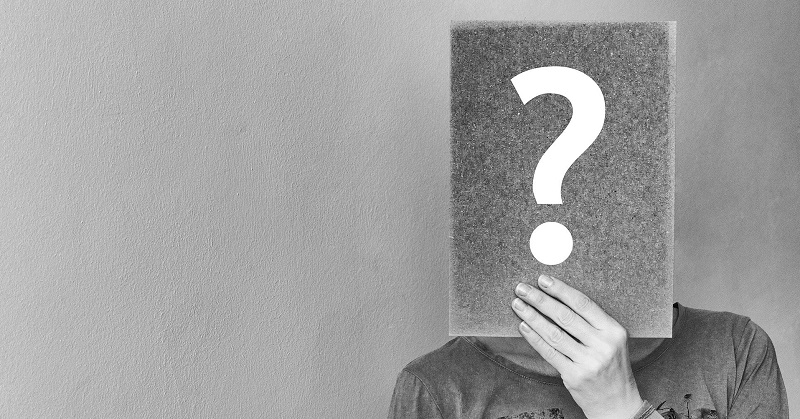
We know that some messages from healthcare professionals aren’t always crystal clear. Our Editor, Liz Ransome-Croker, who assumed she was in the ‘clinically vulnerable’ group because of a congenital heart condition, was asked to ‘shield’.
“My heart condition is complex, but I still thought I was only ‘clinically vulnerable’ based on the government and NHS lists. The letter I received, didn’t specify the group, nor did it clearly tell me to isolate for 12 weeks. But it did suggest that I ‘shield’.
To be honest, I have decided to isolate as much as possible for as long as needed. I am not going out for a daily walk and my husband and I are getting food delivered.
I can order prescriptions online and the pharmacy is just around the corner. When my husband goes for my medication, he’s extra careful, but I am not staying away from him.
Luckily my husband isn’t having to work at the moment (he’s a teacher), so is isolating with me. But if he is needed we’ll need to rethink things and decide whether or not to ‘shield’ me.”
We also asked our DHorizons Tribe about their experiences. Georgie was equally confused by the two letters she received:
“I had a letter from my consultant 3 weeks ago advising me to shield. I then had the general NHS letter last week telling me to shield for 12 weeks from then.
There was no date on the second letter, so I don’t know whether it meant to start the 12 weeks from that point or when the government letter was sent.
I’m just following all the advice and not leaving my house. It is just difficult to completely shield when I have 24-hour care!”
Another member, Roland, has found that communication about what precautions he should take has been muddled: “I got texts, I got the letter, I got phone calls and I got an (unexpected) delivery of basic items from the local authority.
I’m HIV+ and I think the messaging for people with it has been very confusing. HIV was included in the original list of conditions that made a person vulnerable. It was then amended to only HIV+ people with poor blood counts – but mine is good… From what I have heard from others too, it seems inconsistent.”
Added to this, some people who think they would fall into one of the two groups or would be at increased risk if they got Covid-19 haven’t received a letter at all.
This includes our Co-founder Martyn Sibley, who has experienced repeated issues with chest infections. He has decided to self-isolate anyway, and other members of the Disability Horizons team are doing the same thing.
Tribe member Maggie, who also isn’t in one of the groups, told us: “I didn’t get a letter, but I am fully locked down as I have an autoimmune disease and fibromyalgia, which means I have fatigue and pain. I just know how badly I’d get it, I am so hiding away.”
Mum Lorna said: “My daughter didn’t fit the exact criteria for ‘clinically extremely vulnerable’. But we’d been isolating already for about 3 weeks when we got the letter.
Also, prior to the lockdown, the emphasis was on vulnerable adults. Vulnerable children were hardly mentioned, if at all.”
You know yourself and your condition best, as well as your family situation. So think about what would be right for you. But make sure that you speak to your healthcare professional first.
This is particularly the case if you haven’t received a letter and think you should have, are confused by what you’ve been told to do or want to do something different.
Regardless of what’s been said, we’re seeing people erring on the side of caution and choosing to self-isolate/shield where possible, or be particularly stringent with social distancing.
How to shield or self-isolate
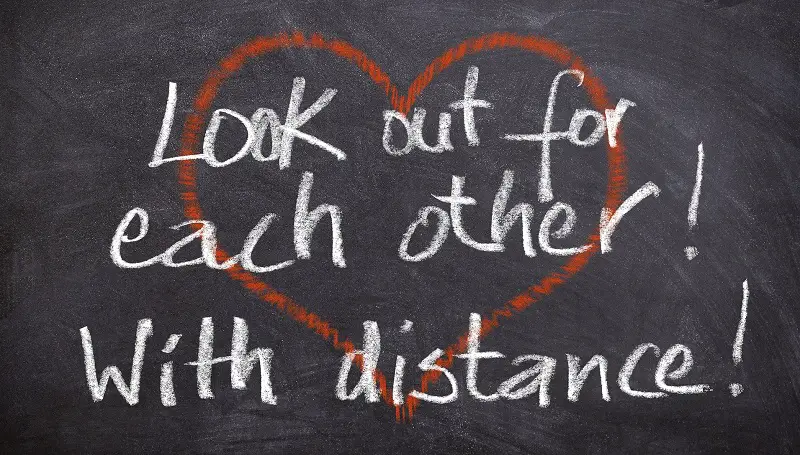
If you are self-isolating because you have Covid-19 symptoms – a new continuous cough or high temperature – you should stay at home at all times. This includes not going out for essentials or daily walks to exercise.
If you’re self-isolating or shielding because of your condition, recent changes mean you can go outside, say for exercise or fresh air, but you should otherwise stay at home and minimise the number of times you go out.
If you work, you should do so from home. If this isn’t possible, speak to your employer about your options as soon as possible,
If you can, shop or order medication online, or ask relatives or neighbours to do so for you, getting them to leave them outside. If this is proving tricky for you, or you need additional help, read our section below on where to get help.
If you have any hospital or GP appointments scheduled, speak to your healthcare provider to find out whether it is necessary or can be postponed. If it is essential, they might be able to do it over the phone or on a video call.
Please note, that as of 6th July, more changes have been suggested for those who ‘shield’, and ‘shielding’ with be paused completely as of August.
As physical fitness is incredibly important, particularly at the moment, it’s worth looking at what exercise you can do at home – take a look at our article 10 exercises to keep fit and flexible if you’re disabled.
Whatever your situation, keep up hygiene measures, such as washing your hands for 20 seconds – particularly if you have had to order something in – and cough or sneeze into a tissue.
Find out more about cleaning measures and how long coronavirus can live on surfaces in our main guide.
Additional advice on shielding can be found on the government and NHS websites.
Remember that if you or someone you know has symptoms, they should be fully self-isolating and shielding from others for 7 days or more.
Where to get for help if you’re shielding
If you’re in either the ‘clinically vulnerable’ or ‘clinically extremely vulnerable’ group and need help self-isolating, register on the government website for support: gov.uk/coronavirus-extremely-vulnerable or call 0800 028 8327.
Once verified, you should get a letter to confirm what help you will get, which might include free food parcels with essentials and assistance with getting medication.
However, once ‘shielding’ is paused on 1st August, this may not still be available. We have also heard that people have had patchy responses and support via this route, so we’d recommend looking at other options too.
Check your local councils’ website to find out what services it is offering in response to the outbreak. Many also have helplines for specific issues, which you can contact via phone, email or contact form.

Your GP, community nurse or main healthcare provider might also be able to point you in the direction of advice and support.
When it comes to food, most of the big supermarkets are offering a range of services during the pandemic, such as special opening times for ‘vulnerable’ customers and priority delivery slots.
There are also a number of takeaway delivery companies adapting to serve essential items instead of fast food, and national organisations offering food parcels. Visit our full guide to shopping safely during the Covid-19 outbreak for full details.
With medications, many doctors enable you to order online and send your prescription straight to your chosen chemist.
Local pharmacies are also trying to adapt to help deliver prescriptions or allow a nominated person to collect medication for you, so speak to yours to check.
You could also try Boots‘ prescription delivery service, as well as online-only prescription services Pharmacy2U and Well.
If none of this will work for you, a number of charities and organisations are preparing to assist with getting essentials.
- The NHS has recruited thousands of volunteers to help people who are struggling at home. To make use of this service, call 0808 196 3646 (8am to 8pm).
You can also visit the NHS Volunteer Responders website for more information, and the Royal Voluntary Service (the associated organisation co-ordinating the volunteers) for additional advice. - Mutual Aid UK is an online resource where you can search for community groups in your area who can help in a number of different ways.
- Our Community connects people locally who can help with everything from getting food to picking up prescriptions.
- The Red Cross has a helpline you can call (0808 196 3651) for advice, information on services available locally to you and emotional support.
- Local BBC radio stations have a new initiative called Make a Difference, which broadcasts bulletins that share details of help from organisations and individuals in local areas. It is also trying to connect people together during the lockdown.
- If you have a specific condition, the charity associated with it might be able to offer advice or assistance. For many, this includes a helpline you can call. Here are a few examples to get you started, but there are many more:
– Age UK’s website has a tool that lets you search for support in your local area.
– The National Autistic Society has a tool that allows you to search for services that are still open in your area.
– Action on Hearing Loss has a helpline (0808 808 0123) and advice on its website.
– RNIB has a helpline (0303 123 9999) and its associated website, Sight Advice, answers common questions.
– Mencap has advice dedicated to people with learning disabilities and a helpline (0808 808 1111) you can call for further information.
– Macmillan Cancer Support has a helpline you can call on 0808 808 00 00, online advice and an online community group.
It’s worth noting that many of these services are only available to ‘clinically vulnerable’ or ‘clinically extremely vulnerable’ people who cannot get help from friends, family, carers or neighbours.
But it’s worth checking, as that’s not the case for all, particularly the individual charity support lines.
By Disability Horizons
More on Disability Horizons…
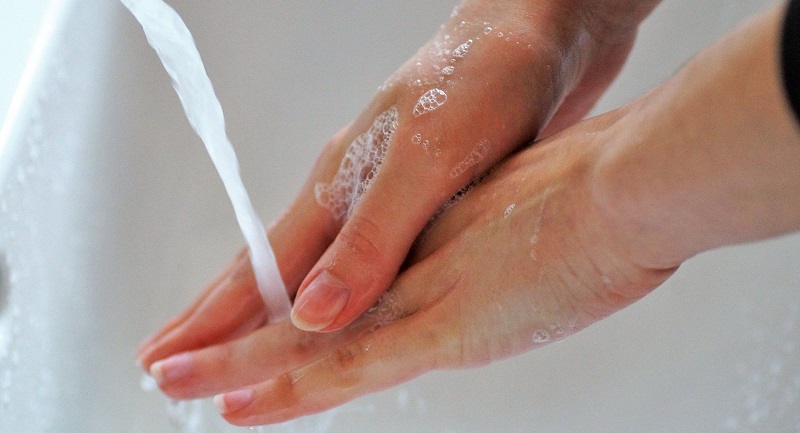
I am on the extremely vulnerable list and have been told to shield for 12 weeks. I got my letter in the first wave. My daughter then got a letter mid-April that told her to shield for 12 weeks! We have decided to shield as a family of 5. This means that my boys and my husband don’t get to go out either but we decided that was nicer and easier than me shutting myself in a room and using the kitchen separately.
We found the only way to get a priority supermarket shop was to sign up on the government website and say that we needed help getting food. Then the supermarkets contacted us!
I suspect that the extremely vulnerable won’t be allowed out for more that 12 weeks! I think we might have to do some form of isolation until a vaccine comes out.